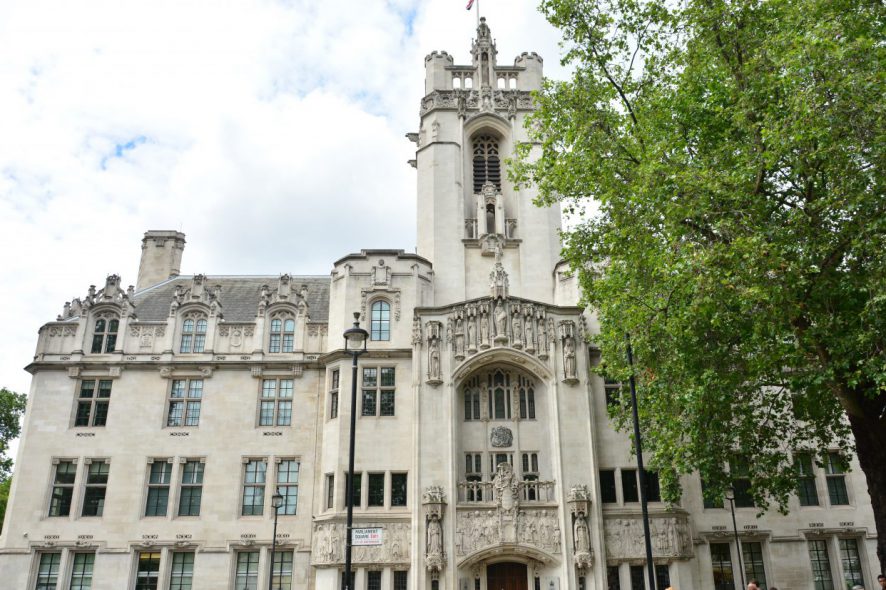United Kingdom Supreme Court: While expressing that, the fact that the other person must have the ability to consent to the sexual activity and must in fact consent before and throughout the sexual activity applies to everyone in society, Bench of Lord Briggs, Lady Arden, Lord Burrows, Lord Stephens and Lady Rose, JJ., laid down a very detailed decision on ‘consent’ with respect to sexual relations and the catch in the present matter was the diagnosis of autistic disorder of the appellant.
Issue
Present appeal raised issues of profound significance under the Mental Capacity Act 2005 for the appellant and others like him with impairment of, or a disturbance in the functioning of mind or brain which potentially renders them unable to make a decision for themselves in relation to having sexual relations.
Whether the information relevant to JB’s (appellant) decision to have sexual relations includes the fact that the other person must be able to consent and give and maintain consent throughout?
Factual Background
Appellant who was diagnosed with autistic spectrum disorder combined with impaired cognition expressed a strong desire to have a girlfriend and engage in sexual relations. His previous behaviour towards women-led the respondent local authority to conclude that he cannot safely have unsupervised contact with them.
Questions to be considered:
- Does a person need to understand that their sexual partner must have the capacity to consent to sex?
- Does the person also need to understand that their sexual partner must consent before the sexual activity starts and that their consent must continue throughout the sexual activity?
Analysis
The function of Section 27 of the Mental Capacity Act 2005 is to identify certain decisions which are so personal to the individual concerned that no one may take them on his behalf if he is unable to take them for himself.
Court added that,
Section 27 only makes clear that “where a court finds that a person lacks the capacity to consent to sexual relations, then the court does not have any jurisdiction to give consent on that person’s behalf to any specific sexual encounter”.
Mr McKendrick sought to describe JB’s wish to initiate sexual relations as a desire rather than being a decision within Section 2(1) MCA.
To the above-stated, Bench expressed that a wish to initiate sexual relations can be described as a desire to do, but clearly a desire gives rise to a decision as to whether to fulfil that desire.
It may be helpful to observe that the terminology of a capacity to decide to “engage in” sexual relations embraces both (i) P’s capacity to consent to sexual relations initiated by the other party and (ii) P’s capacity to understand that, in relation to sexual relations initiated by P, the other party must be able to consent to sexual relations and must in fact be consenting, and consenting throughout, to the sexual relations.
Decision
Evaluation of JB’s capacity to make a decision for himself is in relation to “the matter” of his “engaging in” sexual relations. Information relevant to that decision includes the fact that the other person must have the ability to consent to sexual activity and must in fact consent before and throughout the sexual activity.
Supreme Court opined that under Section 3(1)(a) MCA, JB should be able to understand that information and should be able to use or weigh it as part of the decision-making process.
In the present matter, JB was unable to make a decision for himself in relation to the stated matter because of an autistic impairment of his mind. Though, Court declined to make a final declaration that JB does not have the capacity to make a decision to engage in sexual relations.
Hence, the matter be remitted to the judge for reconsideration and the appeal was dismissed. [A Local Authority v. JB, [2021] 3 WLR 1381, decided on 24-11-2021]
Advocates before the Court:
Appellant
John McKendrick QC Ian P Brownhill Helen Law (Instructed by Enable Law)
Respondent
Vikram Sachdeva QC
Richard Whittam QC Alexander Ruck Keene
Fiona Paterson (Instructed by Wolferstans Solicitors)
1st Intervener (Respond) (written submissions only) Aswini Weereratne QC Sophy Miles Mary-Rachel McCabe Caragh Nimmo (Instructed by Irwin Mitchell)
2nd Intervener (Centre for Women’s Justice) (written submissions only)
Victoria Butler-Cole QC
Tim James-Matthews (Instructed by Centre for Women’s Justice)







